Tracking Inequalities in Cancer
The European Cancer Pulse is a unique data visualisation tool designed to track inequalities and monitor progress in cancer care across Europe, highlighting the factors that influence disparities in cancer care.
 |
The European Cancer Pulse puts a spotlight on inequalities throughout the cancer pathway due to gender, socioeconomic status or other social determinants and illustrates where researchers and policy-makers must take effective action. Disparities displayed in the Pulse include cancer burden, prevention efforts, research spending, diagnosis, and treatment access.
Click on the map below to access the tool.
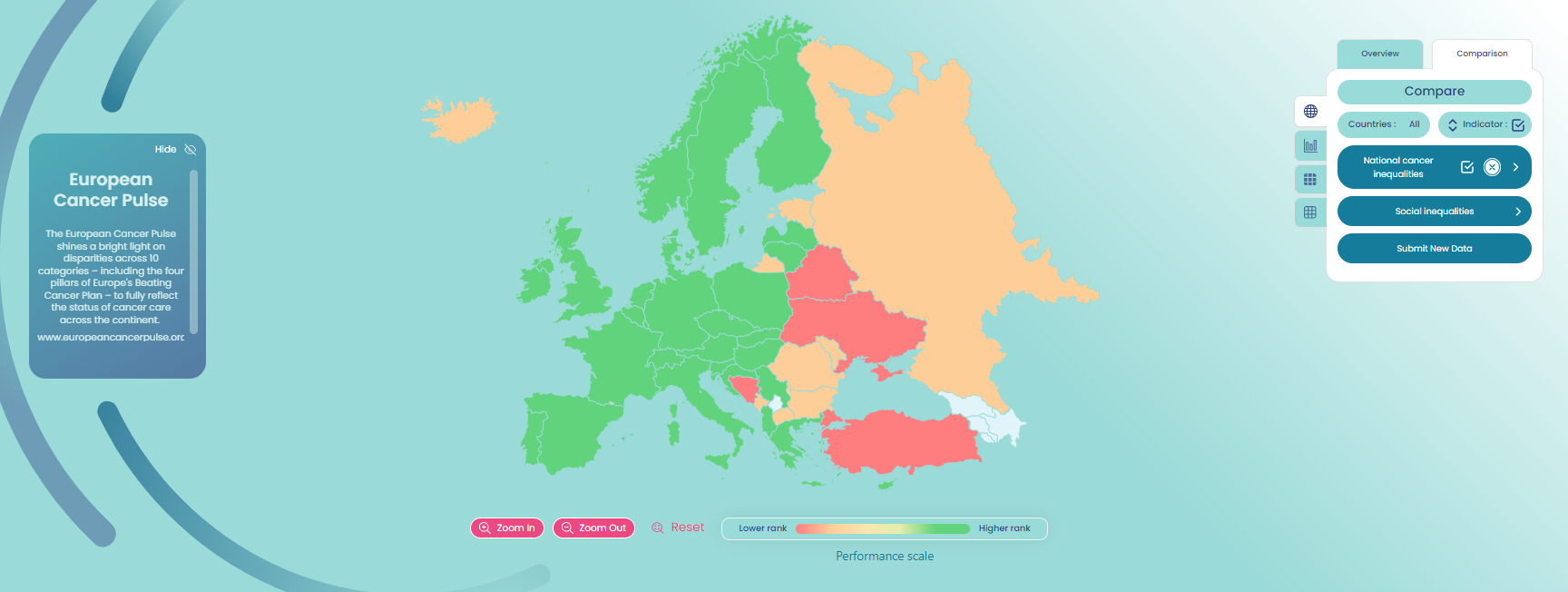 |
What is the European Cancer Pulse?
The main objectives of this tool are:
- providing easy and public access to wide-ranging, currently fragmented data intelligence on cancer inequalities;
- amplifying data and initiatives from across the cancer community on quantifying and tackling cancer inequalities. This includes ongoing collaboration of the European Cancer Pulse with the EU Cancer Inequalities Registry;
- fostering political attention to all determinants of cancer inequalities and ambitious policies addressing them;
- identifying and filling gaps in data intelligence on cancer inequalities;
- raising awareness of the full extent of cancer inequalities within the wider stakeholder community.
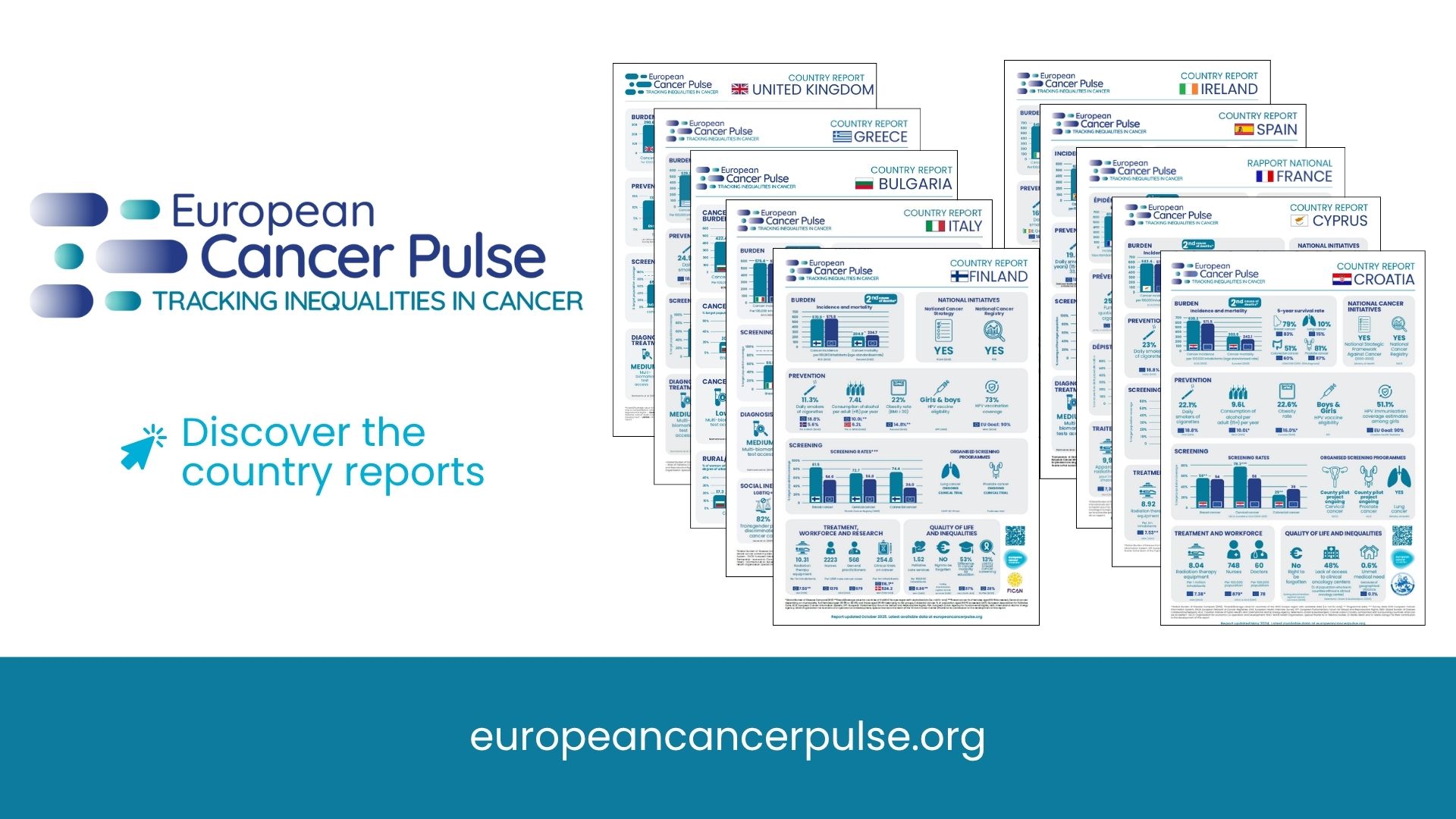 |
Click on the image above to see all available country reports or use the 'related resources' menu on this page to download the individual reports .
The European Cancer Pulse – updated
Launched at the 2023 European Cancer Summit, the European Cancer Pulse now includes an array of new features:
- Country comparison mode: a concise benchmark of cancer care performance in countries of the WHO European Region. Select one or multiple indicators to reveal disparities across and within countries.
- Enhanced visuals: complex data simplified as interactive, colour-coded maps and bar charts illustrating how countries perform, and which ones are meeting major policy objectives.
- Download the data: stored on your computer and use it for analysis and presentations.
Explanatory videos on how to use the tool
Raising awareness and prompting recognition of existing inequalities
Disparities in cancer care persist within and between countries throughout Europe due to peoples’ social background. A person’s health should not differ according to where they were born or live. Use the European Cancer Pulse to increase awareness and prompt recognition of disparities across countries in Europe and to support achieving equity.
The European Cancer Pulse is a tool designed under the umbrella of ECO’s Inequalities Network
More on our work related to cancer inequalities - Inequalities Network:
| |
The European Cancer Pulse informs policy action
Europe’s Beating Cancer Plan has laid strong foundations, yet data from the European Cancer Pulse shows that policy-makers need to accelerate momentum.
The European Cancer Manifesto for 2024 calls for data-driven actions to ensure equity across the cancer pathway. The Pulse supports the Manifesto by:
- benchmarking European countries’ performance on each indicator;
- identifying where momentum needs to accelerate to achieve cancer policy goals;
- providing the evidence base to the European Cancer Manifesto.
This tool will also be important for our new National and European Parliamentarians for Cancer Action group (www.canceraction.eu) as it will help feed into their activities with the aim to tackle inequalities in cancer on a national and European basis:
 |
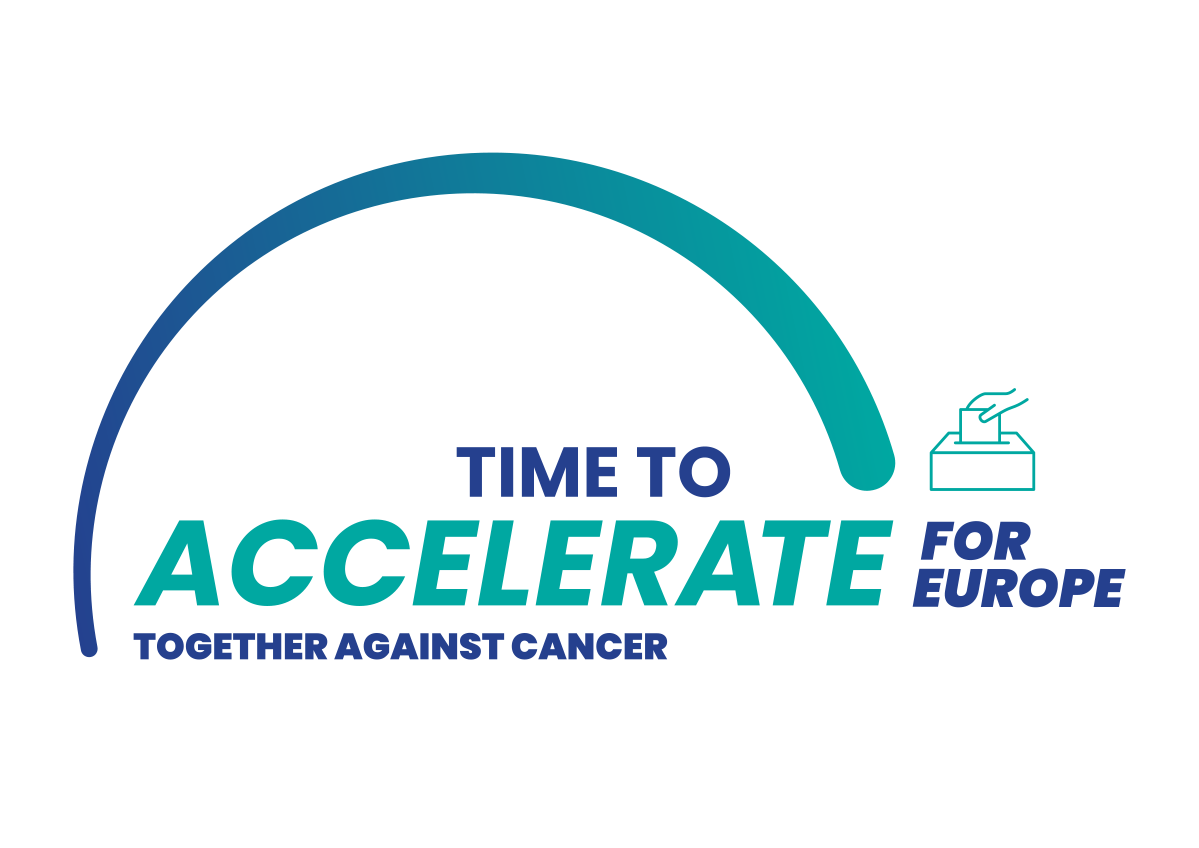 |
High-Level Workshop: European Cancer Pulse. Cancer Data against Cancer Inequalities
28 June 2023, 09:00-15:30
This workshop convened high-level experts:
- Alice Pisana and Corina Vasilescu (DG SANTE); Magdalena Stepien and Tony O’Grady (JRC); Miltos Pavlou (EU FRA) and Otto Visser (ENCR);
- Andre Ilbawi (WHO); Marilys Corbex (WHO Europe); Salvatore Vaccarella (IARC); Dheepa Rajan and Florian Tille (EOHSP) and Caroline Berchet (OECD);
- Andreas Charalambous (ECO and EONS); Mark Lawler (ECO and Queen’s University Belfast); Ajay Aggarwal (ESTRO); Wim Ceelen (ESSO) and Gilliosa Spurrier-Bernard (ECO Patient Advisory Committee);
- Sybil Green, Kelsey Kirkwood and Laura Levit (ASCO); Paolo Casali (EURACAN) and Raymond Gemen (EPHA)
- Thomas Hofmarcher (Swedish Institute of Health Economics) and Richard Sullivan (King’s College London)
- EU-funded projects: Ricardo Pietrobon, Veronica Coppini and Victor Galvão (BEACON); Peter Nagy and Eric Solary (4.UNCAN.eu)
The discussion focused on:
- The future of cancer system performance;
- Harmonisation of data collection: need for consensus on methodologies to collect data;
- Research disparities: targeting not only patients’ behaviours but also policymakers;
- Social inequalities: importance of having a consensus on how social inequalities are prioritised, agreeing on relevant indicators and upskilling the workforce to collect relevant data routinely.
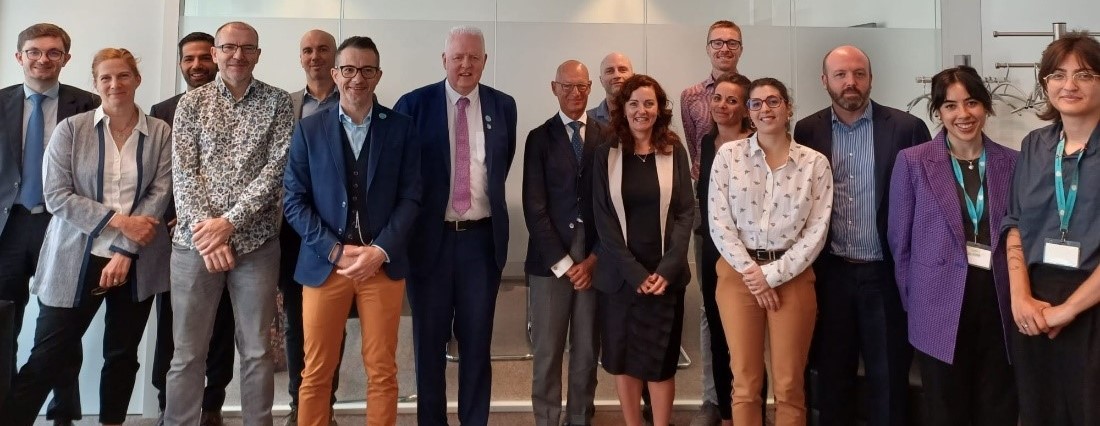 |
Help improve the European Cancer Pulse
The European Cancer Pulse is a living tool that highlights the common effort of the European cancer community to monitor and reduce cancer inequalities. Much data on inequalities in cancer – be it linked to people’s sexual orientation, gender, or socio-economic status – is still missing. If your organisation has related research or data, the European Cancer Pulse can amplify its reach.
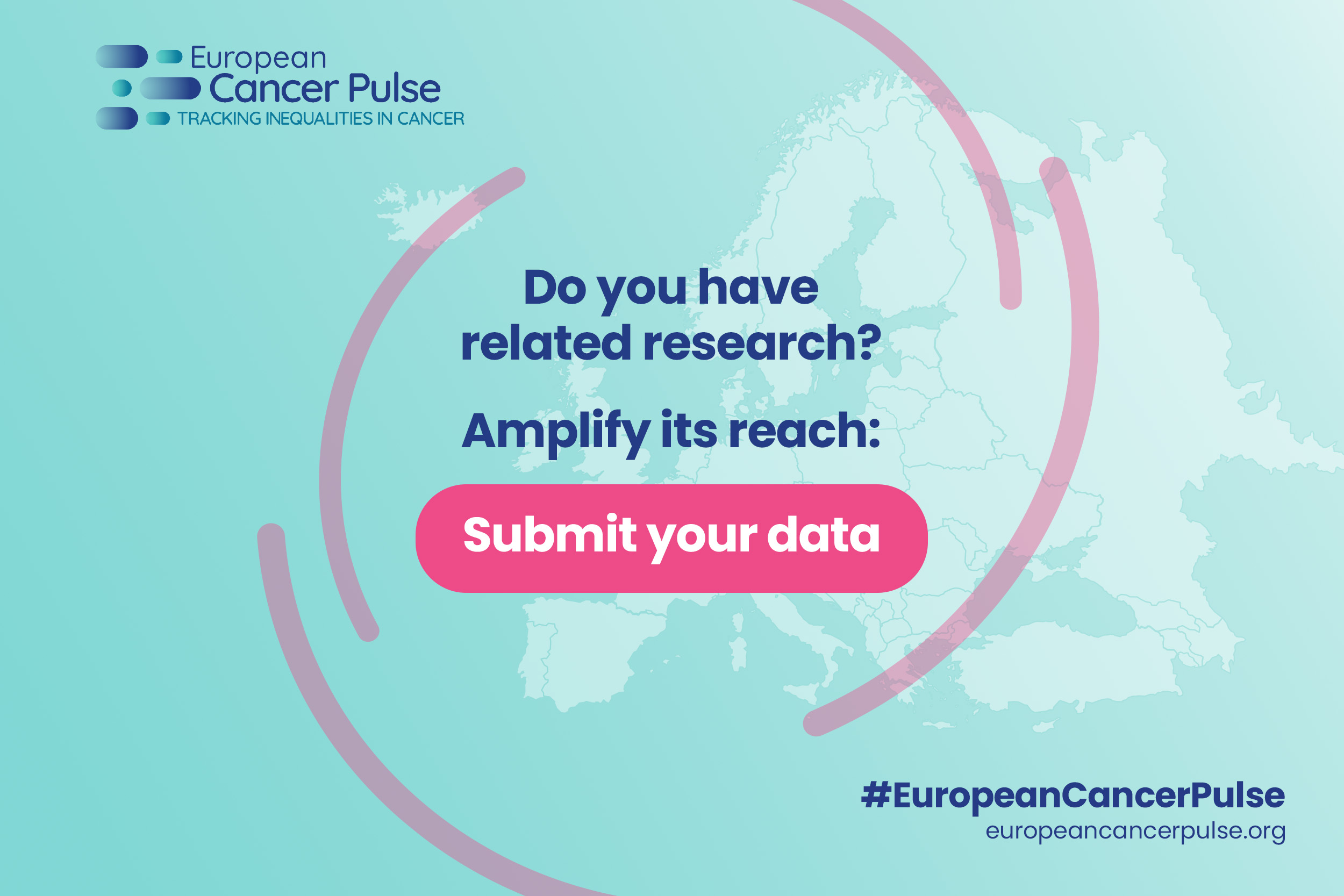 |

